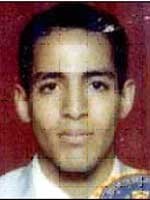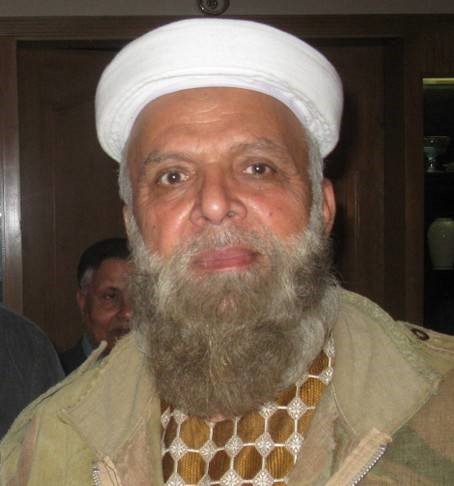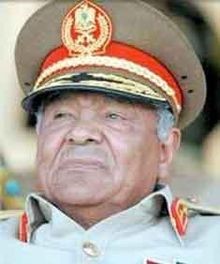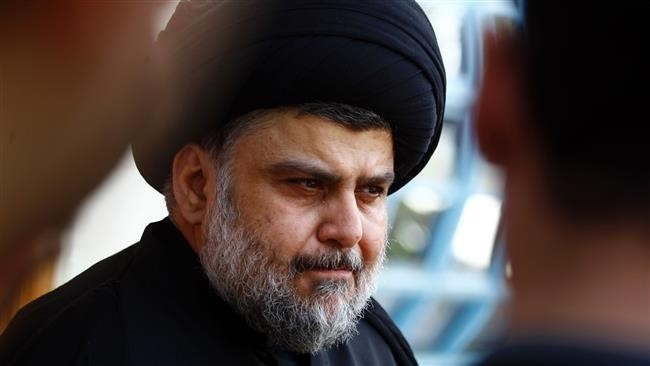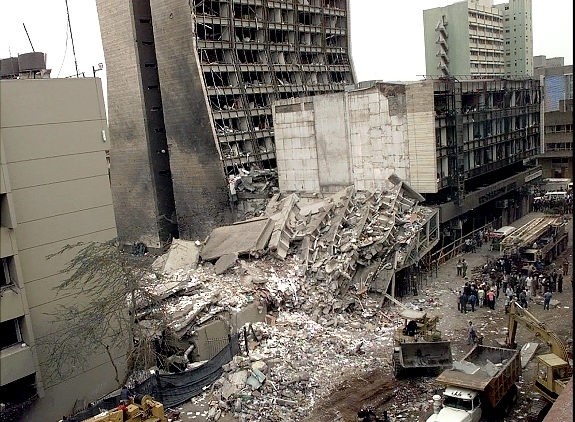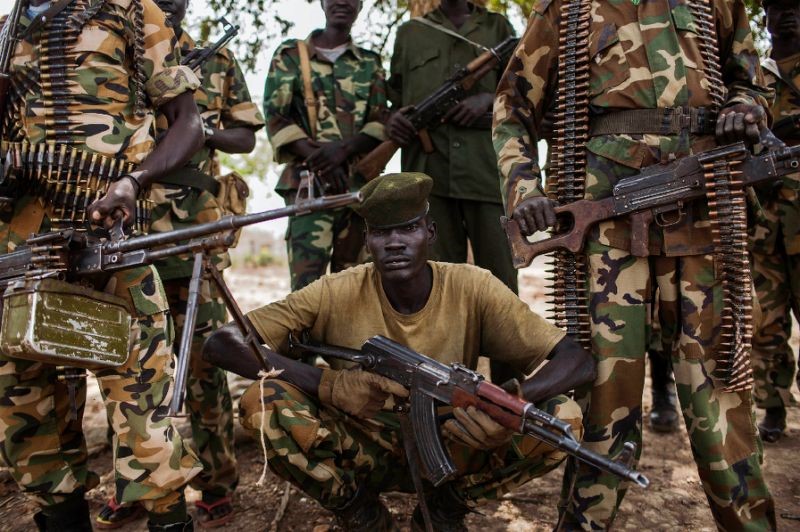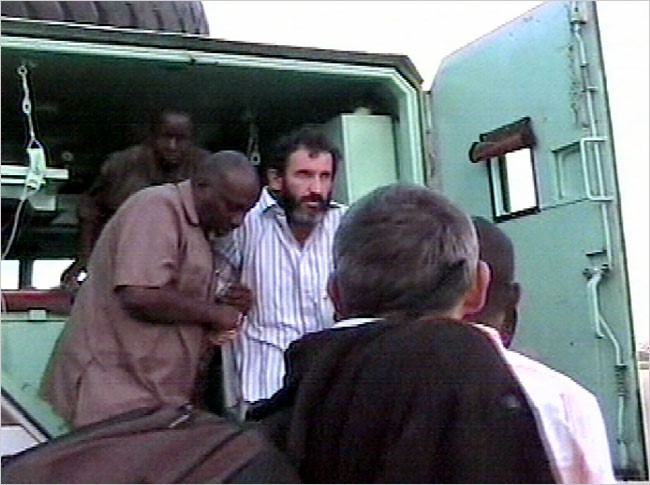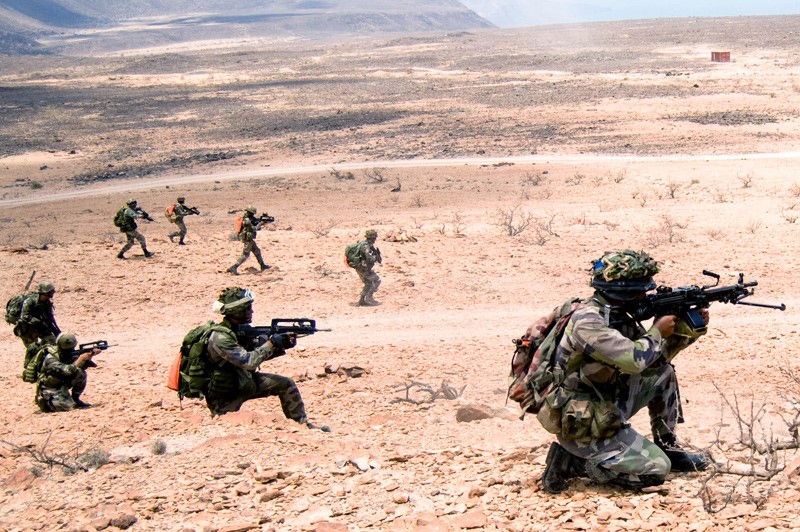Andrew McGregor
September 25, 2009
Few nations in the world are as strategically important but as little known as Djibouti, a small desert nation of half a million people in the heart of the Horn of Africa. A lingering insurgency by the ethnic-Afar Front pour la Restauration de l’Unité et de la Démocratie (Front for the Restoration of Unity and Democracy – FRUD) that many believed was over in 2001 has re-emerged as one of a number of security problems challenging Djibouti’s continued stability.
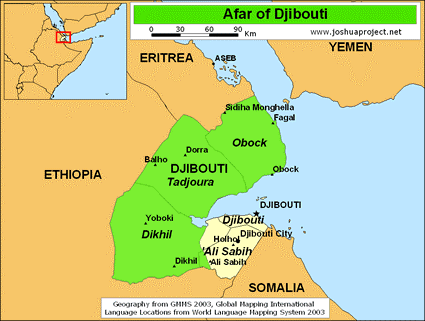 FRUD is based in northern Djibouti, the traditional home of the nomadic Afar people. The Afar ethnic group represents roughly a third of the population in Djibouti, where the dominant ethnic Somali group is divided between the majority Issa clan and smaller groups from the Issaq clan and the Gadabursi, a Dir sub-clan. Most of the nomadic Afars live in the Danakil Desert of Ethiopia, giving them their alternate name of “Danakil.” The lack of Afar representation in the central government sparked the Djiboutian Civil War in 1991. France became involved in both mediation efforts and support missions for government troops, but the conflict continued until 2001, when the remaining radical faction signed a peace agreement with the government and joined the president’s governing coalition. Since then, however, it appears that a number of Afar militants have retaken the field, dissatisfied with the implementation of the peace treaty. Most of the movement made peace with the government in 1994, with a group of hardliners under the late FRUD founder Ahmad Dini Ahmad holding out until 2001 before cutting their own deal with the government. Though certain roles at the highest level of the government have been reserved for Afars, the rest of the administration is still largely dominated by the ethnic-Somali Issa clan.
FRUD is based in northern Djibouti, the traditional home of the nomadic Afar people. The Afar ethnic group represents roughly a third of the population in Djibouti, where the dominant ethnic Somali group is divided between the majority Issa clan and smaller groups from the Issaq clan and the Gadabursi, a Dir sub-clan. Most of the nomadic Afars live in the Danakil Desert of Ethiopia, giving them their alternate name of “Danakil.” The lack of Afar representation in the central government sparked the Djiboutian Civil War in 1991. France became involved in both mediation efforts and support missions for government troops, but the conflict continued until 2001, when the remaining radical faction signed a peace agreement with the government and joined the president’s governing coalition. Since then, however, it appears that a number of Afar militants have retaken the field, dissatisfied with the implementation of the peace treaty. Most of the movement made peace with the government in 1994, with a group of hardliners under the late FRUD founder Ahmad Dini Ahmad holding out until 2001 before cutting their own deal with the government. Though certain roles at the highest level of the government have been reserved for Afars, the rest of the administration is still largely dominated by the ethnic-Somali Issa clan.
Hassan Mokbel, the FRUD spokesman, announced in early September that the movement had fought off an attack by the Djibouti military on one of their bases in the northern Mablas region. Though the attack was supported by two helicopter gunships that bombarded FRUD positions, Mokbel claims the rebels killed four soldiers and wounded 20 others in repulsing the government attack (FRUD communiqué, carried by dabio.net, September 1; Middle East Online, September 1). The troops were units of the Armée Nationale Djiboutienne (AND) based at Gal Ela in Mablas, together with reinforcements from the barracks at Tadjourah and Obock. If the FRUD reports are accurate, the action would appear to be the Djibouti army’s biggest offensive against the Afar guerrillas since May, 2006, when Colonel Abdo Abdi Dembil of the Presidential Guard led 2000 men through the Tadjourah and Obock districts (FRUD communiqué, May 17, 2006, carried by harowo.com, May 22, 2006).
The FRUD militants term the present Djibouti regime a 32-year-old dictatorship characterized by a refusal to conduct free and transparent elections, a refusal to honor peace agreements, the repression of social movements (including trade unions) and the killing of innocent civilians, citing the killing of five people during the November 2005 clearance of the slum district Arhiba in Djibouti City (FRUD communiqué, June 26, carried by the Sudan Tribune, July 3; FRUD communiqué, May 17, 2006, carried by harowo.com, May 22, 2006).
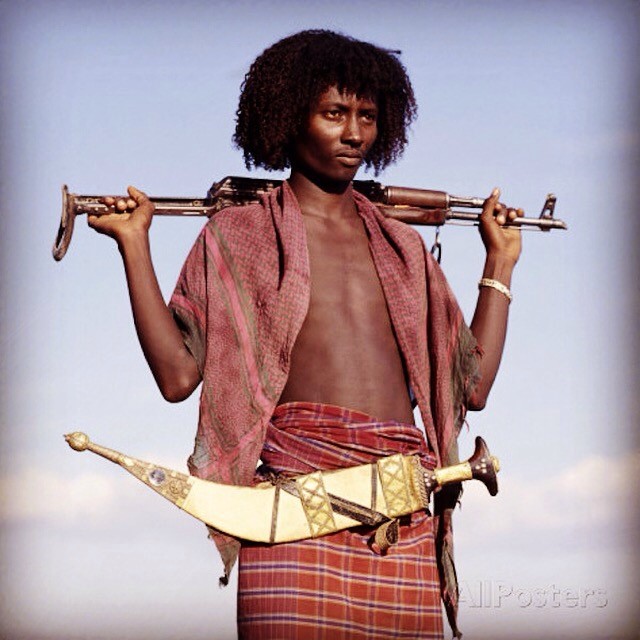 Afar Tribesman
Afar Tribesman
According to spokesman Hassan Mokbel, “FRUD, which has a politico-military approach, does not exclude any option. For FRUD, armed struggle was never the only solution. These options come in a wide range, combining social actions and mass actions and diplomatic policies… FRUD has until today ensured its military presence on the ground and is able to respond to any aggression on the part of the AND. In addition, FRUD has considerably strengthened its positions in the Djibouti diaspora in Europe, North America and Oceania [including New Zealand and Australia]” (Les Nouvelles.org, January 24, 2006).
Mokbel complains that “international forces” are placing advanced technology such as satellite surveillance at the disposal of President Guelleh, who uses it to thwart the development of “true democracy” in Djibouti. Guelleh is also accused of playing the French army against the U.S. military to extract the greatest concessions from each (Les Nouvelles.org, January 24, 2006). The FRUD spokesman maintains that the movement has never been equated with terrorism because it has never targeted civilians – “I would even add that the activities of FRUD are the antithesis of religious proselytism (Les Nouvelles.org, January 24, 2006). In June, FRUD appealed to the people of Djibouti to “end the lifetime presidency of Ismael Omar Guelleh” and join FRUD’s struggle for “justice, for a real national state and for authentic democracy” (FRUD communiqué, June 26, carried by the Sudan Tribune, July 3).
France first arrived in the region in 1862, when it acquired the port of Obock from the local Sultans. By 1888, the Djibouti region had become the colony of French Somaliland, giving France a strategic presence in the Horn of Africa that was largely unaffected by independence in 1977 (French Somaliland was known as “The French Territory of the Afars and the Issas” from 1967 to 1977). France continues to guarantee Djibouti’s territorial integrity from foreign aggression, but now finds itself competing for the attention of Djibouti’s leaders with the powerful new American military presence based at Camp Lemonier since 2002. Camp Lemonier, once a French Foreign Legion base, now hosts the American Combined Joint Task Force – Horn of Africa (CJTF-HOA), which focuses on coordinating U.S. military activity in the region, including anti-terrorism operations. In recent years China has emerged as a new suitor, seeking to establish diplomatic and economic ties with Djibouti.
Though Djibouti’s ethnic-Somalis have so far escaped being dragged into the interminable conflict raging between their ethnic-Somali cousins in Somalia, Djibouti’s role as a host of French and American training of Transitional Federal Government (TFG) troops and African Union Mission in Somalia (AMISOM) forces and its own offer of peacekeeping troops for Somalia have incensed Somalia’s al-Shabaab Islamist militants. Al-Shabaab, which has carried out a number of deadly suicide bomb attacks against AMISOM targets, has promised to prepare a similar welcome for the Djiboutians (Garowe Online, September 18).
Djibouti’s rapidly deteriorating economy and massive unemployment in an increasingly urban population is another threat to its future stability. Djibouti also has a simmering border conflict with Eritrea in the Ras Doumeira region on the Red Sea coast. Nine members of the AND were killed when fighting broke out with Eritrean forces in June, 2008.
This article first appeared in the September 25, 2009 issue of the Jamestown Foundation’s Terrorism Monitor

